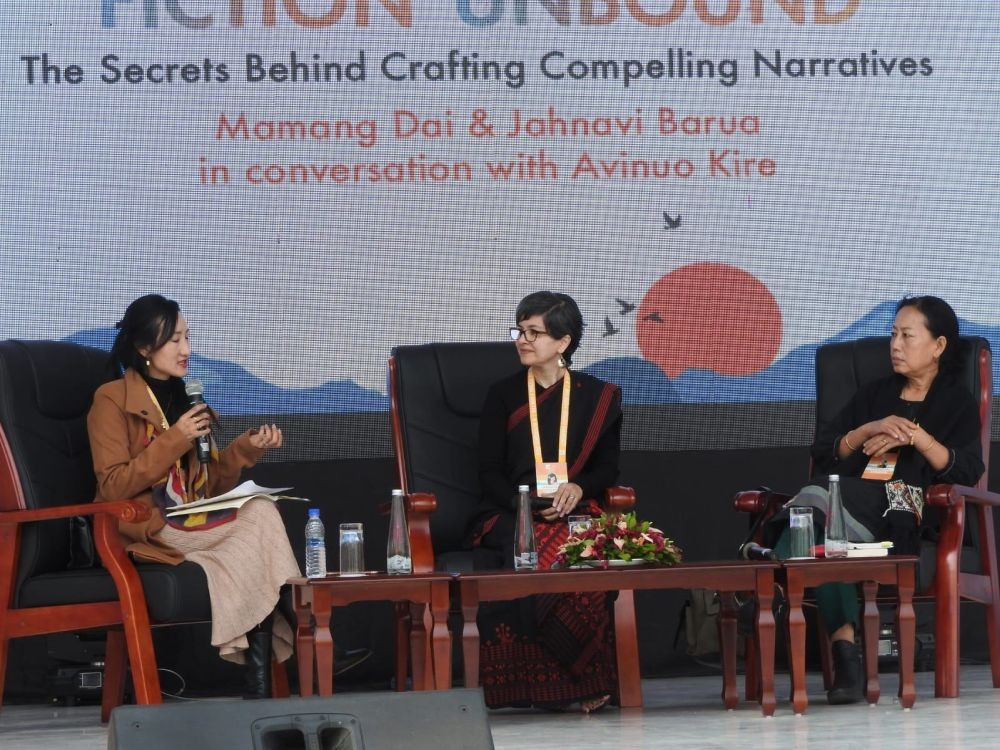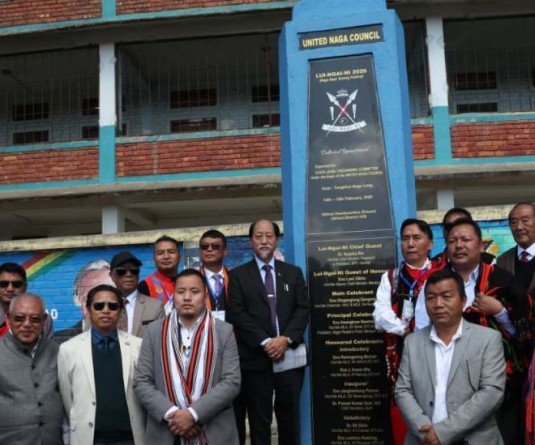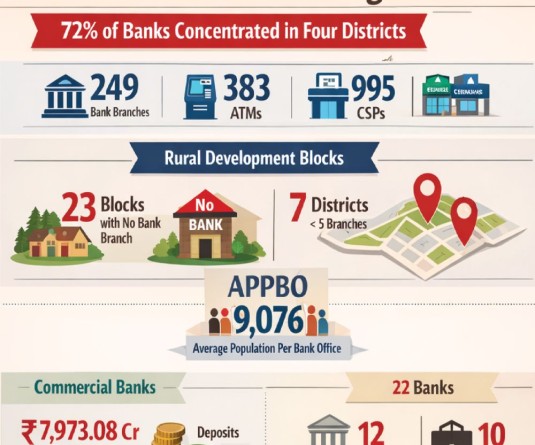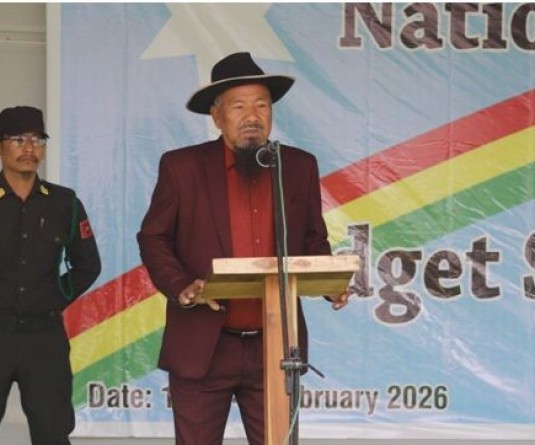Avinuo Kire in conversation with Mamang Dai and Jahnavi Barua during 'The White Owl Literature Festival & Book Fair' which began on February 9, at The Plaza Zone, Niathu by The Park in Chümoukedima. (Morung Photo)

Fiction Unbound: In conversation with Mamang Dai and Jahnavi Barua
Morung Express News
Chümoukedima | February 9
‘Fiction Unbound,’ a compelling session on crafting narratives and unlocking the artistic world of fiction was held with two literary virtuosos from Northeast India— Mamang Dai and Jahnavi Barua during the ‘The While Owl Literature Festival and Book Fair’ which began today at Zone Niathu by The Park in Chümoukedima. In conversation with Avinuo Kire, the writers talked about their leap into the art of writing from very different professions.
For Mamang Dai, a poet and novelist from Arunachal Pradesh, she was the first woman from her state to be selected for an IAS and was undergoing training. She left her post, as she felt she wanted to “explore things a bit more.” At that time, it was a “very simple decision,” as she thought, “Come what may, I’ll do something else.”
While for Jahnavi Barua who hails from Assam, was a doctor in medicine before she chose to begin her career in writing. When her infant son took ill, she had taken a break from medicine for a year, which eventually led on to four years. She said that the temporary break became a permanent one where during her stay at home, she began “re-reading” voraciously, maintaining she had always been a reader while growing up.
She read with such intensity and depth that stirred her to start writing. In those four years, she had written numerous short stories. This led to her first book—‘Next Door,’ published by Penguin Random House India which marked the beginning of her journey, as she described herself as an ‘accidental writer.’
Dai said that for a writer, it is simply the joy of writing that pushes one to write, citing a feeling that deeply moves you by the ‘beauty’ of something or the ‘terribleness’ of it. “The writer’s urge is to put it down on paper. The story is all around us,” she noted.
To her, the process of creating a story begins with a ‘poetic image’ which becomes her opening, as she held that most times, the stories “just come to you,” rather than the writer looking for stories. While it may be a little bit of magic, Dai maintained that it comes with a lot of ‘hard work,’ as she noted the importance of giving the story time.
When she writes a story, she seems to know the beginning and the end where it is the middle that needs to be worked out, especially in a work of fiction.
For Barua, while she begins to weave a story, she starts with a person— a character, which brings with her/him a story with the relationship and challenges which carries the story forward. She shared similar views that she knows the beginning and the end, leaving the middle to change the setting and characters to give it more meaning, while agreeing that it is a lot of ‘hard work.’
Barua went on to say that being a writer is a ‘hard, lonely and brutal life’ that doesn’t pay you enough to live on. “Be prepared to have another career, and be prepared for very hard work,” she advised the young writers. She was also quick to add that the magic happens when all the hard work comes together, “and I think that is the magic.”
While answering that she cannot write when she is not inspired, Barua said that the whole process of being creative was just feeling for that particular point where inspiration hits you, and unless she begins to feel it bubbling, it was only then that she can write, she confessed. During the end of the conversation, the audience was enthralled with readings from an excerpt of their books.






